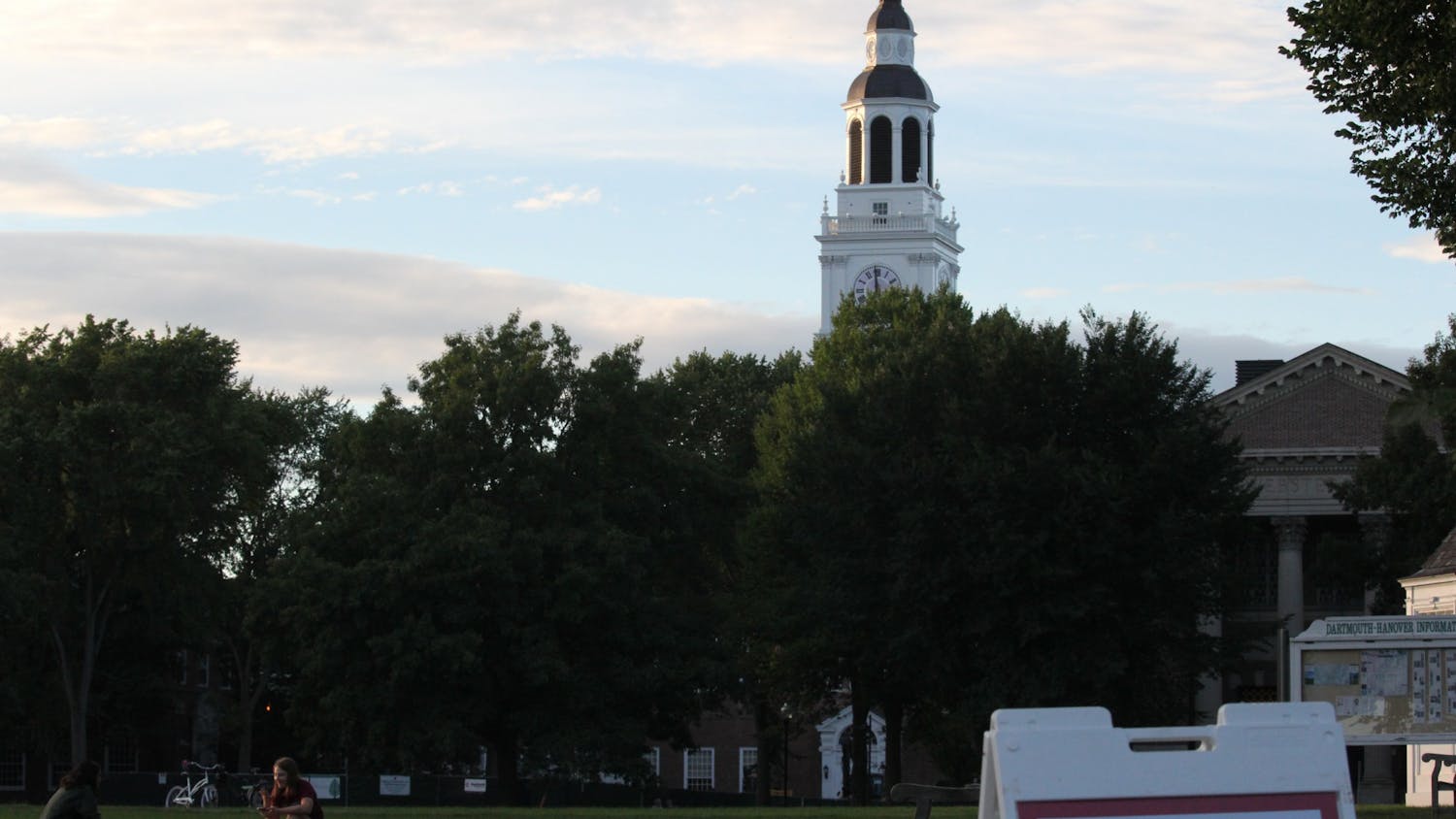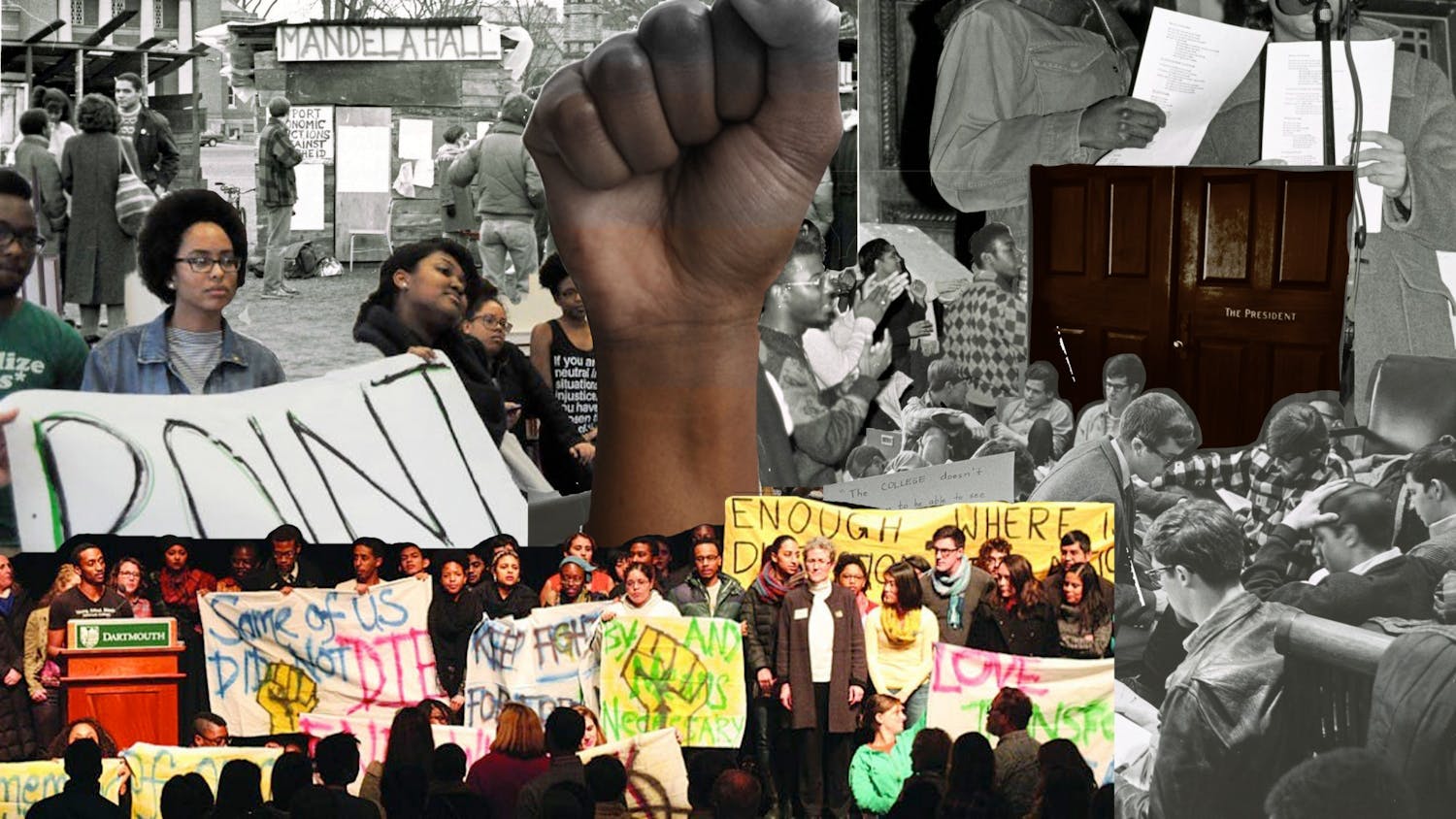On Tuesday, late night talk show host and political satirist Trevor Noah joined over 1,800 Dartmouth students, faculty and staff for a discussion on issues ranging from COVID-19 to racial politics to social media.
The half-hour conversation, organized by the Montgomery Fellows Program and the Hopkins Center for the Arts, was moderated by Montgomery Fellows director Steve Swayne and Isabel Calihan ’22.
Swayne and Calihan began the event by talking with Noah about the transition to working from home. Noah said that without a live audience, he has been able to try new and different things on his show, likening himself to a “YouTube performer on TV.”
Noah said that his job is to communicate with people, so it is less relevant where he does it than how he does it. He hopes that his “Daily Social Distancing Show” can provide levity during a time of collective adversity.
The remaining questions for Noah were chosen ahead of time, and the students whose questions were selected joined Noah, Swayne and Calihan on the video call. The questions were submitted through the Dartmouth house communities, since the Montgomery Fellows Program — which seeks to bring prominent individuals to campus — typically offers events and programming by engaging with the house system.
“The [house] professors and that system is a great way to reach a lot of people really quickly,” Ally Tufenkjian, the Hop’s education and engagement manager, said. “Our intent was to have student engagement across the campus; working through the house communities felt like the best way to do that.”
The student questions focused on the current climate of the country. Piper Stacey ’23 asked whether Noah saw any similarities between current racial tensions in the U.S. and the unrest he experienced growing up in South Africa under apartheid. In response, Noah said that he sees many similarities, which he said he credits to the fact that South Africa looked to the U.S. as a schematic for dividing people based on the color of their skin. He added that this system pits people of color against poorer white people, who he said believe that their success is inhibited by people of color.
Elian Gerard ’21 asked about Noah’s own experiences with race and his 2016 book, “Born a Crime.”
“A lot of the questions that were submitted were high stakes questions,” Tufenkjian said. “Most of them were like, let’s get into the heat of the moment and really dig in, and so it was speaking to the conversations that the Dartmouth community is interested in right now.”
Rachel Hsu ’23 asked Noah, whose commentary often touches on social issues, about the intersection of social justice and the arts. Noah replied that in order to reach people, both the art and the message behind it must be good; it isn’t enough to simply have a good social mission. When the art itself is appreciated, Noah said, it can play a powerful role in reaching people and making information more accessible — a skill Noah has mastered.
“I think that ‘The Daily Show’ has always been special for its ability to balance humor with its earnest interest in things that matter,” Calihan said.
Noah also talked about misinformation on social media, stating that social media can make us believe in conspiracy theories, or make us feel inadequate. While keeping the tone light with jokes, Noah tackled this complex subject, saying that the internet creates engagement, and salacious content creates the most engagement.
“One of the things I thought was so rich about having [Noah] was that he’s not somebody who is only there to make us laugh,” Swayne said. “He’s a thoughtful human being whose way of seeing the world can go a long way in forming our own. In the midst of that, he’s a pretty funny guy.”
Noah left Dartmouth students with advice at the end of the event. He spoke about the importance of trying to understand other points of view and of engaging with ideas to which you might not normally pay attention. He told students to challenge themselves and others and to think critically rather than just accept answers.
The virtual format allowed Noah to come to campus in a way that might not have been viable before, according to Swayne, who said that Noah’s availability is much more difficult to accommodate than someone who is on an academic schedule or retired.
“We wanted to start the term off right in this galvanizing and exciting way for students,” Tufenkjian said. “There are lots of complex feelings about [the pandemic], and [we] wanted to bring in Trevor Noah, who is like the voice of reason in a lot of ways.”
Calihan said that from the students’ perspective, there were benefits of having the event be virtual as well. She said that being able to tune in from home made it easier on students who are normally busy with classes and extracurriculars, because it takes out the time of going and waiting in line at the Hop.
“Having everything be virtual levels that playing field. Getting Trevor Noah is evidence of that,” Calihan said. “We wanted Trevor Noah because he’s a really interesting person with a really interesting life and a worldview that I don’t think very many people have.”
The event was free for Dartmouth students. With less advertising than events that are open to campus and no ticket sales, the event was a gift for the Dartmouth community from the Montgomery Fellows and the Hop, according to Swayne and Samantha Lazar, the Hop’s curator of academic programming.
“We wanted it to feel like [Noah] was speaking directly to students and to Dartmouth,” Lazar said. “It was for free, for us. It was meant to be a Dartmouth thing, to create a feeling of community."




